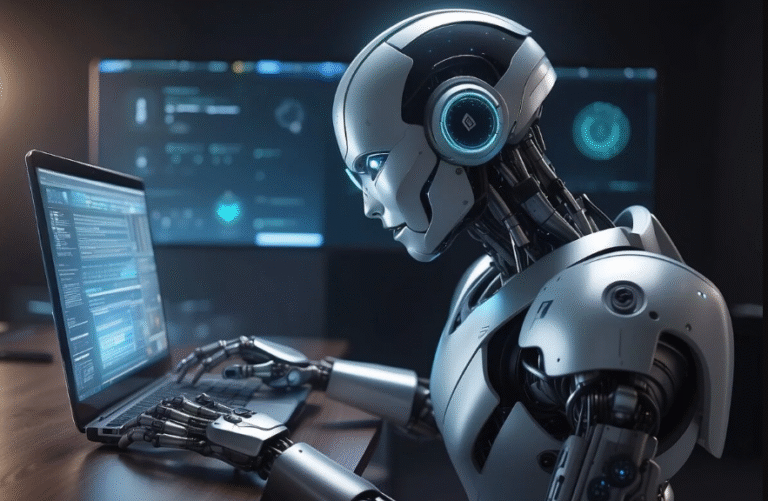AI vs. Human Intelligence: What’s the Real Difference?

The distinction between artificial intelligence and human intelligence is both profound and multifaceted. AI demonstrates exceptional capabilities in data processing and task execution, yet it lacks the emotional and contextual depth inherent to human thought. This disparity raises critical questions about the roles of each in various domains. Understanding these differences could illuminate potential avenues for collaboration, prompting exploration of how their unique strengths can complement one another in future developments.
Understanding Artificial Intelligence
Artificial intelligence (AI) represents a significant advancement in computational technology, characterized by the development of systems capable of performing tasks that typically require human intelligence.
Central to AI is machine learning, which enables algorithms to analyze vast datasets and optimize performance autonomously.
These systems simulate cognitive processes, allowing for the replication of decision-making capabilities, thus enhancing efficiency and expanding the potential applications of AI across various domains.
See also: AI in Cybersecurity: Protecting the Digital World
The Depth of Human Intelligence
Human intelligence encompasses a complex interplay of cognitive, emotional, and social faculties that enable individuals to adapt, learn, and navigate their environments effectively.
This depth includes emotional intelligence, which allows for nuanced interpersonal interactions, and creative reasoning, fostering innovative solutions to complex problems.
Such capabilities underscore the unique and multifaceted nature of human cognition, distinguishing it from artificial systems that lack emotional and contextual awareness.
Strengths and Limitations of AI
The strengths of AI lie primarily in its ability to process vast amounts of data rapidly and perform specific tasks with high accuracy and consistency.
However, its limitations include algorithmic bias, which can arise from flawed data inputs, and a heavy data dependency that restricts adaptability.
Consequently, while AI excels in precision, it lacks the nuanced understanding inherent in human intelligence.
The Future of AI and Human Collaboration
As advancements in technology continue to redefine the landscape of various industries, the collaboration between AI and human intelligence is poised to become increasingly synergistic.
Future collaborative tasks will leverage AI’s analytical capabilities alongside humans’ emotional understanding, enhancing decision-making processes. This partnership promises to optimize efficiency and innovation, allowing each entity to contribute its strengths while addressing complex challenges in diverse fields.
Conclusion
In conclusion, while artificial intelligence demonstrates unparalleled efficiency in data processing and task execution, it lacks the nuanced emotional and contextual understanding inherent to human intelligence. As the adage goes, “Two heads are better than one,” emphasizing the potential of synergistic collaboration between AI and humans. By leveraging AI’s analytical prowess alongside human creativity and empathy, society can tackle intricate challenges more effectively, paving the way for innovative solutions across diverse fields.





